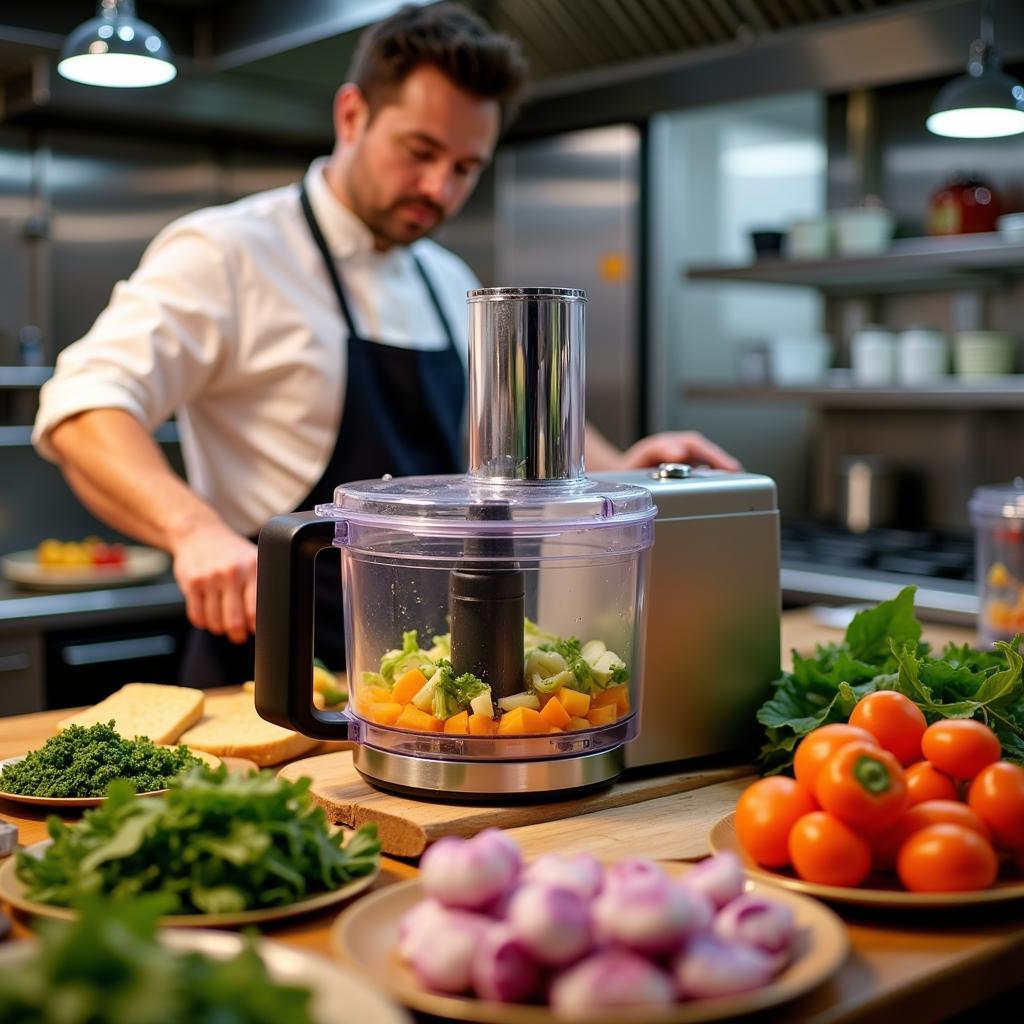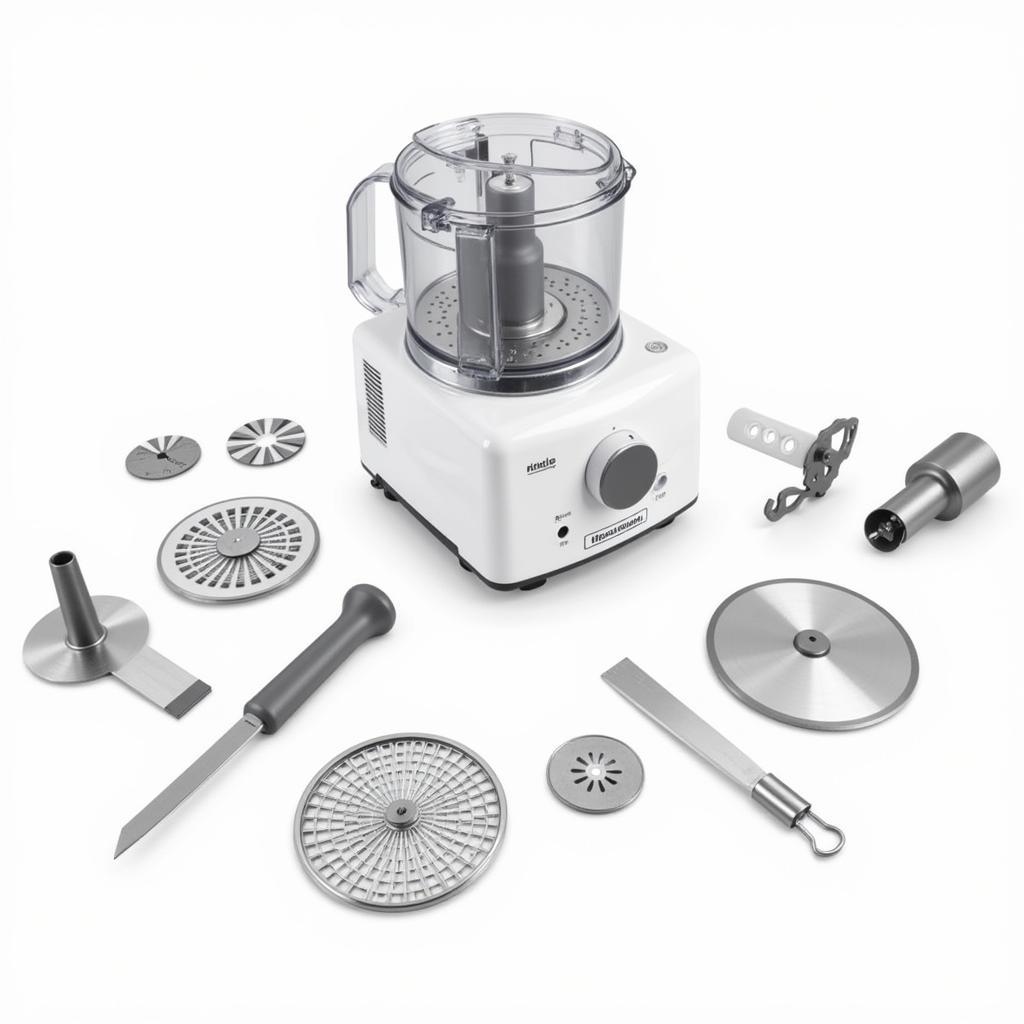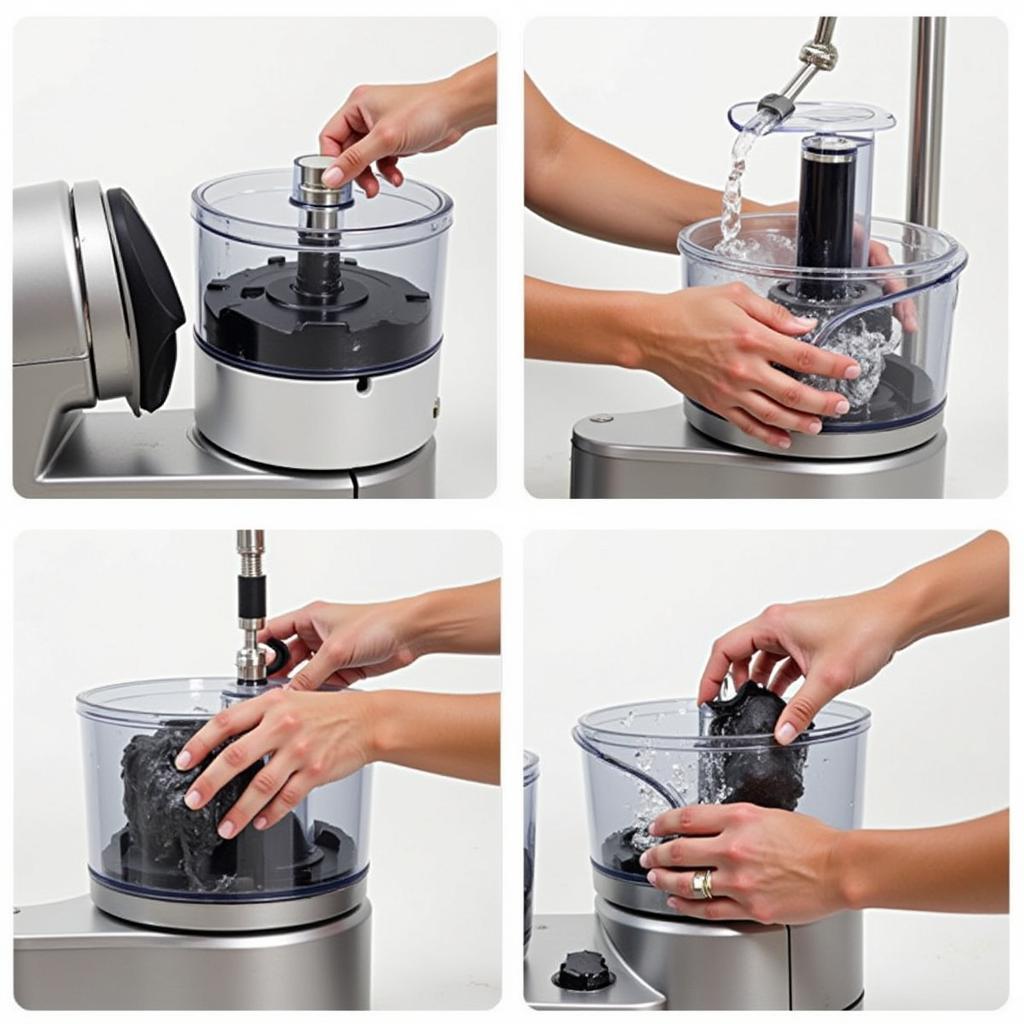A commercial food processor is a vital piece of equipment for any busy kitchen, whether you’re running a restaurant, catering service, or even a bustling home bakery. Investing in the right one can drastically improve efficiency, consistency, and the overall quality of your culinary creations. But with so many options available, choosing the perfect commercial food processor can be a daunting task. This comprehensive guide will delve into everything you need to know about these powerful kitchen appliances, from their various uses and benefits to key features and selection criteria.
Understanding the Versatility of the Commercial Food Processor
Commercial food processors are designed to handle large volumes of ingredients and perform a wide range of tasks with ease. They are indispensable for chopping vegetables, slicing fruits, shredding cheese, kneading dough, emulsifying sauces, and even grinding nuts and spices. Think of it as your all-in-one kitchen assistant, capable of streamlining your workflow and boosting your productivity. For those looking to upgrade their kitchen equipment, a commercial food processor for sale is a worthwhile investment.
Key Benefits of Using a Commercial Food Processor
- Increased Efficiency: Processing large quantities of ingredients becomes significantly faster, saving you valuable time and labor costs.
- Consistent Results: Achieve uniform chopping, slicing, and mixing every time, ensuring consistent quality in your dishes.
- Enhanced Food Quality: Preserve the freshness and nutrients of your ingredients with precise and quick processing.
- Versatility: From slicing and dicing to kneading and grinding, a commercial food processor can handle a multitude of tasks.
- Durability and Reliability: Built to withstand heavy use, these machines offer long-lasting performance and reliability.
Are you considering a robot coupe for your business? Check out the latest models of robot coupe commercial food processor available on the market.
 Commercial Food Processor In Action
Commercial Food Processor In Action
Choosing the Right Commercial Food Processor: Key Considerations
Selecting the right commercial food processor requires careful consideration of various factors, including your specific needs, budget, and available space. Here’s a breakdown of the essential aspects to keep in mind:
Size and Capacity
Determine the volume of food you typically process. Large commercial food processors are ideal for high-volume operations, while smaller models are suitable for smaller kitchens or less frequent use.
Power and Motor
A powerful motor is crucial for handling tough ingredients and ensuring smooth operation. Look for models with high wattage and robust motor construction.
Blades and Attachments
Consider the variety of tasks you need to perform. Different blades and attachments cater to specific functions, such as slicing, dicing, shredding, and kneading. A versatile robot food processor can be a valuable asset to your kitchen.
Construction and Durability
Opt for a commercial food processor made from high-quality, durable materials. Stainless steel components are preferred for their strength, corrosion resistance, and ease of cleaning.
 Commercial Food Processor Blades and Attachments
Commercial Food Processor Blades and Attachments
Ease of Use and Cleaning
Look for models with user-friendly controls and easy-to-clean components. Features like dishwasher-safe parts can significantly reduce cleaning time and effort.
“Investing in a high-quality commercial food processor is a game-changer for any professional kitchen. The time and labor savings alone make it a worthwhile investment,” says Chef Anthony Bourdain, a renowned culinary expert.
Maintaining Your Commercial Food Processor
Proper maintenance is essential for prolonging the lifespan of your commercial food processor. Regular cleaning, proper storage, and occasional professional servicing can ensure optimal performance and prevent costly repairs.
Cleaning Tips
- Disassemble the machine and wash all removable parts thoroughly after each use.
- Use warm soapy water and a soft brush to clean the housing and motor base.
- Avoid using abrasive cleaners or scouring pads, which can damage the surface.
Storage Tips
- Store the machine in a dry, well-ventilated area.
- Keep the blades and attachments separate to prevent damage.
“Regular maintenance is key to keeping your commercial food processor in top condition. A little care goes a long way in ensuring its longevity and performance,” advises Chef Gordon Ramsay, a celebrated culinary figure.
 Cleaning A Commercial Food Processor
Cleaning A Commercial Food Processor
If you’re a pet owner looking for ways to prepare healthy meals for your furry friend, a dog food processor might be a valuable addition to your kitchen.
Conclusion
A commercial food processor is an invaluable investment for any serious culinary operation. Its versatility, efficiency, and ability to enhance food quality make it a must-have for professional kitchens. By carefully considering the factors outlined in this guide, you can choose the perfect commercial food processor to meet your specific needs and elevate your culinary creations.
FAQ
- What is the difference between a commercial and a domestic food processor?
- How often should I clean my commercial food processor?
- What safety precautions should I take when using a commercial food processor?
- What are the most common problems with commercial food processors?
- How do I choose the right size commercial food processor for my business?
- What is the average lifespan of a commercial food processor?
- Where can I buy a commercial food processor?
Need help choosing the right commercial food processor? Contact us at Phone Number: 02437655121, Email: minacones@gmail.com Or visit us at: 3PGH+8R9, ĐT70A, thôn Trung, Bắc Từ Liêm, Hà Nội, Việt Nam. We have a 24/7 customer support team.